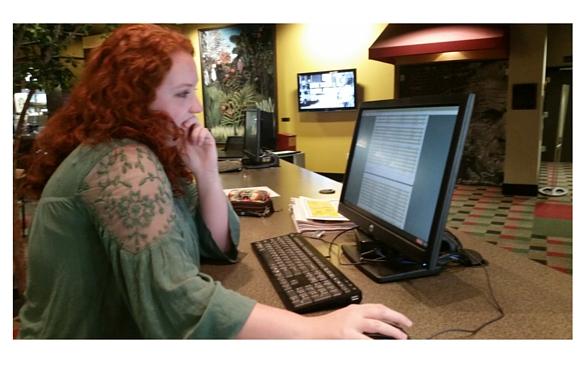By: Savanny Savath, Staff Writer
With registration for Fall 2016 classes last week, students are in various positions regarding their classes and schedules for the new semester. Some students were able to sign up for all of their desired courses. Others signed up for some classes while waiting on one or two others to open up with an available spot. In other cases, some students may not have signed up for any of their desired classes on time.
“My first registration went like a dream. I highly recommend using an Ethernet cable if you can. My second one was a nightmare. I ended up in no psychology classes at all initially. However, [the psychology department] was very helpful with figuring out what to do. I ended up getting an override in one of the classes I needed. I ended up getting my ideal schedule mostly because I just waited. I had the course listing on my computer all summer,” says sophomore Kassie Franck. “When add/drop opened I kept checking and snatched up the classes. The best thing is to be prepared, talk to your professors and advisors without whining because they can’t always control what happens, and keep an eye out to see if people drop the class because often people will.”
With more experience registering for classes, seniors Heather Allen and Jimmy Schwartz have not only advice but concerns with the balance between required classes and their availability and advising for alternative career paths.
Allen is a double major in English and biology.
“Having two very different majors can be hard to handle, but both require so much tinkering to get them to work just right. Then there is adding extra classes that are not needed for my majors but are needed for the graduate programs I applied to. It is so complicated that I kind of do my own advising because ultimately I know what I need. I am pretty proactive, and I have done my own research to know what I need and can handle,” says Allen.
Schwartz is a history major.
“I have to take a certain number of upper level history classes to be able to graduate. Our department is also fairly small, with only seven professors, which should not be problem until you realize that the basic level history classes—mandatory for all students—must also be taught by these same professors,” says Schwartz. “With more and more students being accepted by Wofford, along with more students putting off their history class until they are upperclassmen, more of the intro history classes must be taught. That means that the history department has two options: hire more people, which we do not have the budget for, or teach less upper level classes, which is what ends up happening. So I have had a difficult time getting all the classes needed to graduate with my major as time went on.”
Allen has concerns about the biology department regarding alternative career paths.
“The biology department is incredibly focused on pre-med students that it pretty much forgets that graduate school is an option and desire for some students and that research is a possibility. Most of the guidance I received concerning graduate school and research opportunities actually came from the psychology department. Although Wofford likes to pump out future doctors, the biology department would benefit from including more information about graduate school possibilities, like when they get speakers to come and talk about medical schools and how to get into med school. They should do that for biology graduate schools too,” says Allen.
While Wofford has made changes to make registration easier, such as the online add/drop platform on myWofford and the interactive course schedules, students like Allen and Schwartz note ways in which classes required for majors and general education requirements need to be reassessed.
Franck also reminds students to be proactive in mapping out the courses they need to graduate on time and to make registration a less stressful experience.
“I’m also the person who comes in prepared and with several backups in place when I meet with professors so I think the best way to get the most out of advising is to come in with questions and some kind of plan, but be willing to listen to them and not act like a know-it-all,” says Franck.





























